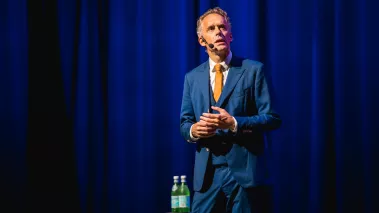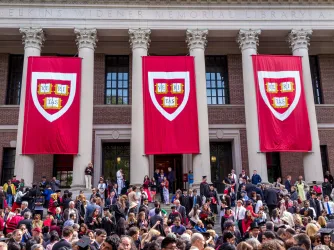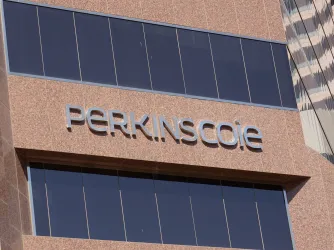Table of Contents
College of Psychologists of Ontario to Jordan Peterson: Undergo reeducation or lose your license

Tony Norkus / Shutterstock.com
Jordan Peterson has been targeted for political dissidence
Dr. Jordan B. Peterson entered the public stage in 2016 when he released a YouTube video asserting that freedom of speech is under threat by the Canadian government via “vague and poorly-written” laws — including Bill C-16 — meant to combat discrimination.
Ever since, he has been professionally targeted for his political dissidence.
In 2019, the University of Cambridge rescinded Peterson’s visiting fellowship, allegedly in response to a photo of Peterson with a man wearing a T-shirt that read, “I’m a proud Islamophobe.” Cambridge’s student union was “relieved” by the decision, stating, “It is a political act to associate the University with an academic’s work through offers which legitimise figures such as Peterson.”
Last year, Peterson resigned from his tenured psychology professorship at the University of Toronto, stating, “The appalling ideology of diversity, inclusion and equity is demolishing education and business.” A couple years prior, hundreds signed an open letter demanding his termination for undermining institutional diversity efforts.
Now, the College of Psychologists of Ontario is threatening to revoke Peterson’s psychology license if he refuses to undergo reeducation, for an unspecified duration, over complaints about his tweets.
Examples of Peterson’s offensive tweets include:
- A tweet that a plus-size swimsuit model featured on a magazine cover is “not beautiful. And no amount of authoritarian tolerance is going to change that.”
- A tweet — in response to a New York Post announcement that Elliot Page is ‘proud’ to introduce a trans character — that read: “Remember when pride was a sin? And Ellen Page just had her breasts removed by a criminal physician.”
- Several tweets critical of COVID-19 mandates, including, “Enough. Enough COVID mandates. Drop the damn masks and the idiot rules and get on with life. Today.”
Although one might find these and other comments of Peterson’s offensive, the college’s actions have been widely criticized as politically biased.
The sanctions appear to be part of a larger effort to infuse DEI into every aspect of the psychology profession in Canada. The College of Psychologists is a group of faculty, professionals, and government-appointed representatives who are incorporating the politically progressive values of diversity, equity, and inclusion into every aspect of their operations.
On April 30, 2021, the college’s DEI Working Group declared that its “overarching goal is to ensure that everyone involved on the College Council, its Committees and staff consider equity, diversity and inclusion in every decision made” [emphasis added]. The group advises multiple committees to implement DEI mechanisms through which anti-DEI professionals like Peterson can be removed before complaints even arise.
Many U.S. institutions embrace DEI initiatives and sanction individuals who undermine DEI
In the United States, where issues surrounding DEI and academic freedom resemble those in Canada and the UK, mandatory DEI statements in hiring procedures help ensure that newly hired faculty nominally embrace DEI. A recent audit of academic job postings during Fall 2020 reveals that more than two-thirds (68%) of job ads mentioned diversity, with approximately one-fifth (19%) requiring DEI statements. And over a third (34%) of academic job postings at elite institutions required applicants to submit these statements. In a forthcoming report by FIRE, approximately half of 1,491 faculty at four-year nonprofit institutions in the U.S. reported that they view DEI statements as “an ideological litmus test that violates academic freedom.”
Faculty are often sanctioned for criticizing DEI initiatives. Here are just a few examples:
- Geophysicist Dorian Abbot’s lecture was canceled by the chair of MIT’s Department of Earth, Atmospheric and Planetary Sciences in an effort to “avoid controversy” surrounding an op-ed critical of DEI.
- Political scientist Bruce Gilley was blocked from Portland State University’s Division of Equity and Inclusion for entering a sarcastic remark into the “Racism Interrupter.”
- Education professor David Phillips was fired from Winston-Salem State University after presenting optional lectures during which he promoted viewpoint diversity.
- English professor Elisa Parrett faced a nine-month investigation at Lake Washington Institute of Technology for criticizing DEI training.
- Mathematician Nathaniel Hiers’ contract was not renewed at the University of North Texas following a joke about DEI flyers.
- Linguist Joshua Katz was terminated after he criticized an open letter signed by Princeton faculty requesting that Princeton adopt numerous DEI policies on campus.
The growing influence of DEI may reflect increasing ideological homogeneity. University faculty are increasingly and overwhelmingly liberal. The Democrat-to-Republican voter registration ratio has increased from approximately 4.5:1 in 1999 to 10:1 in elite liberal arts colleges and social sciences in recent years. The skew is more extreme among younger faculty and graduate students, suggesting that academia will only become more left-leaning.
Ideological homogeneity breeds groupthink, overconfidence, and group polarization, which leads groups to become increasingly intolerant of — and hostile to — dissent.
Psychology, in particular, is a very left-wing discipline in the U.S., and this has implications for research, activism, and professional practice. Psychologists have long tended to be more liberal than most other professionals and the general population. Consequently, they’ve historically espoused liberal socio-political views in both their social policy prescriptions and articles.
So what does this mean?
Ideological homogeneity breeds groupthink, overconfidence, and group polarization, which leads groups to become increasingly intolerant of — and hostile to — dissent. When professional associations share ideological biases, they are at a greater risk of implementing overreaching policies because they are predisposed to rate in-group members’ arguments favorably and gradually adopt more extreme positions. Groups of high-ranking professionals who prioritize social cohesion over the critical examination of their core beliefs are especially prone to groupthink.
This may be due in part to blind-spot bias, wherein we tend to believe that our own judgments are less susceptible to bias than are those of people with whom we disagree. For example, people believe their own personal connection to a given issue does not bias their own judgments (or the judgements of those who share their views), but that such connections among those who hold different views are a source of bias. As a result, we overestimate how well we understand controversial, multifaceted issues.
Groups of intelligent academics may be particularly prone to group polarization — the tendency of groups to reach conclusions that are more extreme than the initial inclinations of its members. Chief among these inclinations is the desire to censor ideological adversaries.
The public is losing trust in the ability of institutions and associations to act as neutral arbiters
When professional organizations are ideologically skewed, their representatives may dismiss the common wisdom and concerns of the larger, more ideologically diverse society in which social problems are defined, evaluated, and treated. In a survey of 1,000 American adults, more than a third (38%) of Americans believe “liberal bias” in academia is a very serious problem.
When professional organizations are ideologically skewed, their representatives may dismiss the common wisdom and concerns of the larger, more ideologically diverse society.
And a survey of 1,050 California adults reveals that more than half (56%) were willing to speculate about a researcher’s ideological beliefs solely on the basis of whether a hypothetical study found that a given intervention was effective. When research findings favored liberals, citizens tended to attribute them to the researcher’s liberalism. Citizens did not, however, attribute the researcher’s conservatism to findings that favored conservatives, suggesting that the public is particularly suspicious that liberal ideology influences scientific findings.
Academic fields and professional associations can restore trust by not only tolerating (i.e., refusing to penalize) dissenters, but also considering dissenting perspectives. To recognize and avoid ideological biases, representatives of professional organizations can perform what Phillip Tetlock called “turnabout tests,” such as imagining counterfactual scenarios in which conservative political beliefs are treated as facts and disagreements as denial or error. Other methods include the “consider the opposite” strategy, “devil’s advocate” role-playing, and accountability to audiences of unknown or mixed viewpoints.
And when evaluating whether an individual’s conduct warrants an investigation, organizational leaders in the United States, where we are fortunate to have the U.S. Constitution, should adopt First Amendment standards to avoid accusations of bias and abuse of authority. If the expression is — or, in public settings, would be — protected by the First Amendment, then organizational leaders should explicitly, unequivocally state that they will not impose sanctions, no matter how many, or how sympathetic, the complaints.
Many institutional leaders in the U.S. have actively refused to impose sanctions, despite facing immense pressure to do so. When University of Dallas alumni petitioned for professor David Upham’s termination over social media comments critical of a transgender nominee for cabinet secretary in the Biden administration, the university president and provost refused to sanction Upham, explaining that they are “not in the business of limiting the speech of our faculty and staff when they speak on personal social media sites.” And when University of Chicago graduate students directed a series of sanction demands at professor Dorian Abbot for criticizing DEI initiatives, President Zimmer issued a statement affirming the university’s commitment to the Chicago Statement.
If institutional leaders not only tolerate, but also seek to understand the arguments of ideological dissenters, their organizations gain credibility among large segments of the public who can benefit from their services and knowledge.
Recent Articles
FIRE’s award-winning Newsdesk covers the free speech news you need to stay informed.

Harvard’s resistance to Trump is a model for US universities

Sixty-one media organizations and press freedom advocates contest Perkins Coie executive order — First Amendment News 466

Harvard stands firm, rejects Trump administration’s unconstitutional demands


